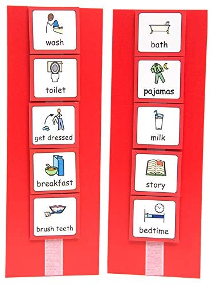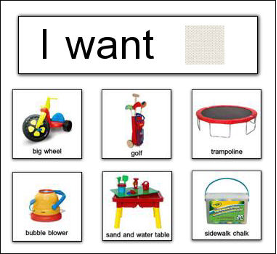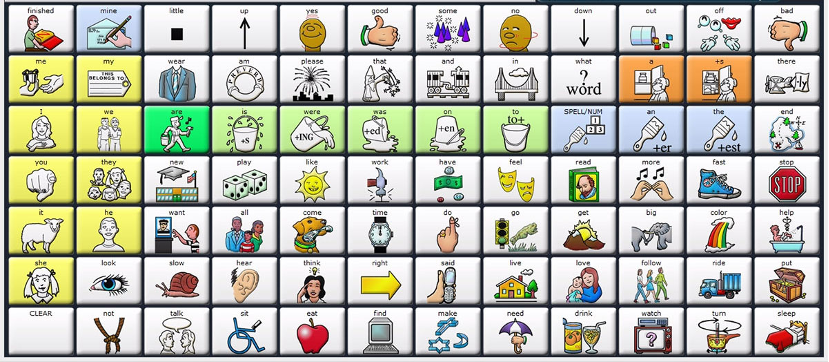For some patients, an alternate form of communication is best for them and will help them be more functional participants in their environments. Augmentative and Alternative Communication (AAC) devices are frequently used in our sessions to establish the best functional speech outcome for our patients. These devices range from low tech to high tech.
A low-tech option may be a picture or symbol system known as Picture Exchange Communication System (PECS). This system can be used to express wants/needs or as a scheduler for kids who have difficulty with transitions. (https://pecsusa.com/pecs/)


A high tech option that is used in our clinic is the Language Acquisition through Motor Planning (LAMP) Words for Life. This software is downloaded onto an iPad and gives patients access to approximately 4,000 words. These words can be used at the single word level or combined to make phrases and sentences. This software is able to be customized to the skill level of the child. (https://www.prentrom.com/prc_advantage/lamp-words-for-life-language-system)

These low and high tech AAC options are incorporated in our typical speech therapy sessions in conjunction with verbal language models. A frequent question that parents ask in regards to use of an AAC device is “will this stop my child from learning how to speak?”. Research has shown that using AAC does not stop an AAC user from learning to speak.
There are several other options for AAC that can be explored to find the best fit for the child.
“The Impact of Augmentative and Alternative Communication Intervention on the Speech Production of Individuals With Developmental Disabilities: A Research Review” by Diane C. Millar, Janice C. Light and Ralf W. Schlosser in Journal of Speech, Language, and Hearing Research, April 2006, Vol. 49, 248-264. doi:10.1044/1092-4388(2006/021)
“Effects of Augmentative and Alternative Communication Intervention on Speech Production in Children With Autism: A Systematic Review” by Ralf W. Schlosser and Oliver Wendt in American Journal of Speech-Language Pathology, August 2008, Vol. 17, 212-230. doi:10.1044/1058-0360(2008/021)
Presley Napier, M.S., CCC-SLP
Beyond Therapy for Kids- Hattiesburg
Clinic Director/Speech Language Pathologist
